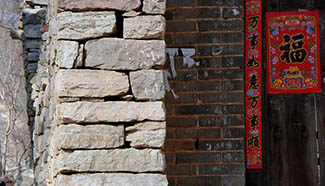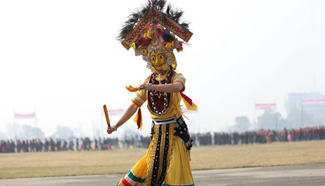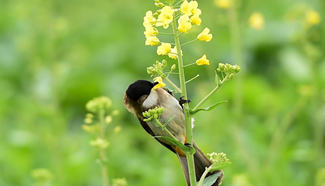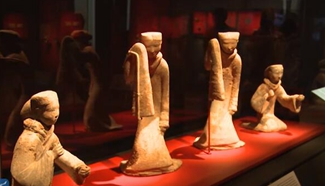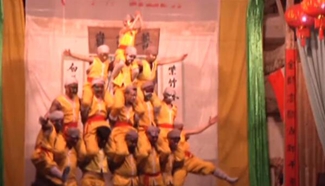CHANGSHA, Feb. 18 (Xinhua) -- When social media posts of pangolin being eaten at banquets triggered public fury in China last week, a wildlife protection specialist saw a ray of hope.
"I hope the scandal will become a turning point in our search and rescue for the critically-endangered animal," said Zhou Canying, head of the wildlife protection association in Changsha, capital of central China's Hunan Province.
Zhou and her pangolin protection team have trekked the mountains of Hunan for more than a year but not spotted a single pangolin.
Earlier in February, a screenshot of a microblog post went viral allegedly showing officials in southern China's Guangxi Zhuang Autonomous Region inviting investors from Hong Kong to eat pangolin at a banquet. Guangxi authorities immediately launched an investigation amid public outcry.
"The public rarely pays so much attention to pangolins, and I hope the crisis will lead to new breakthroughs in its protection," Zhou said Saturday, the sixth annual World Pangolin Day.
The ancient species, which has evolved over 80 million years, was once abundant in tropical and subtropical areas of Asia, including Hunan Province.
In Pingjiang County, many people told Zhou that until the 1990s could see pangolins feeding on termites on pine trees .
But things changed drastically in the last two decades: people used excessive pesticides; pines were replaced with firs that produced more expensive lumber; and the remaining pangolins were caught and sold to illegal dealers. Their meat is believed to be a delicacy, and their scaly skin an ingredient in traditional medicine.
"The villagers told me they have never seen a single pangolin since," Zhou said.
A survey by the provincial forestry department in 2001 confirmed the wild pangolin population in the province was zero.
Pangolin is the most illegally traded mammal worldwide, with about 1 million being sold over the past decade.
In China, the animal's skin is believed to ease swelling and promote lactation. A kilo of the best quality can sell for 8,000 yuan (1,165 U.S. dollars).
"A female pangolin breeds only one cub a year. But its ultimate predators, humans, kill it in order to produce milk for their own babies," said Zhou, a mother of two children.
Professor Wu Shibao, a wildlife conservation specialist with South China Normal University, said that about 300,000 pangolins were consumed in China each year.
"As a result the Chinese pangolin, one of the world's eight major pangolin species, is almost extinct," Wu said.
But environmentalists have not stopped their search and rescue of the endangered species.
Last year, a villager in Pingjiang County reported he had found a new cave in the mountain close to his home, and believed it was a pangolin dwelling.
Zhou Canying and her colleagues visited the site. They found 13 similar caves, but no pangolin.
"Either they had been poached, or they had sensed danger and fled. I prayed desperately it was the latter," Zhou said
Zhou's endeavors are widely publicized in Hunan, and sometimes people call her with information.
"One day when I was lobbying for pangolin protection in a village, someone told me a family in the neighboring village had just caught a pangolin and were ready to cook it. We rushed there, but the pangolin was nowhere to be found," Zhou said.
She has seen only one living pangolin, outside a lab.
"It was at the end of 2015. Someone had saved the animal from illegal dealers and left it at a temple in Changsha. It was dying and had bloodstains on its mouth."
Despite Zhou's efforts to save it, the mammal died in less than two weeks. When researchers dissected it, they found gypsum in its stomach, used by dealers to make it heavier, to sell for more money.
"It was pregnant, too," Zhou said.
Zhou said she often dreamed of the dead pangolin and its cub.
"I hope more people will join us to protect their peers from such a miserable fate."


